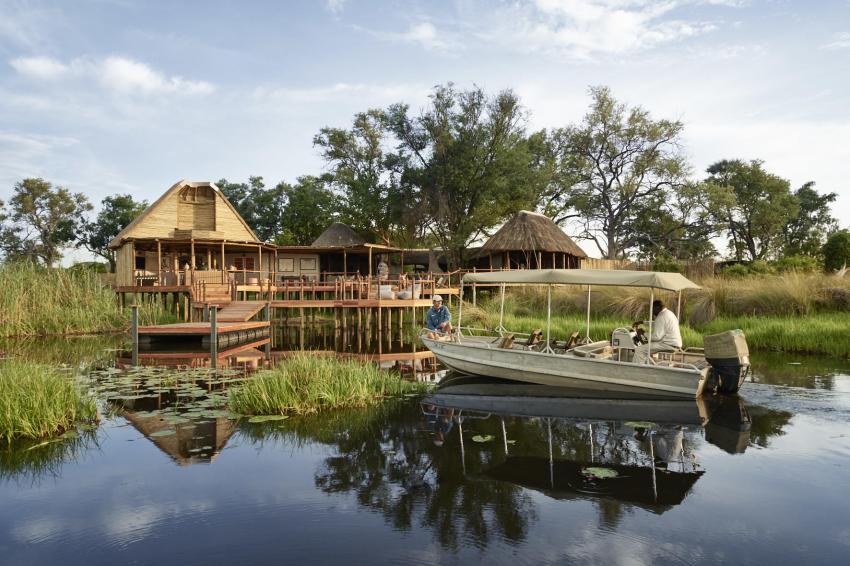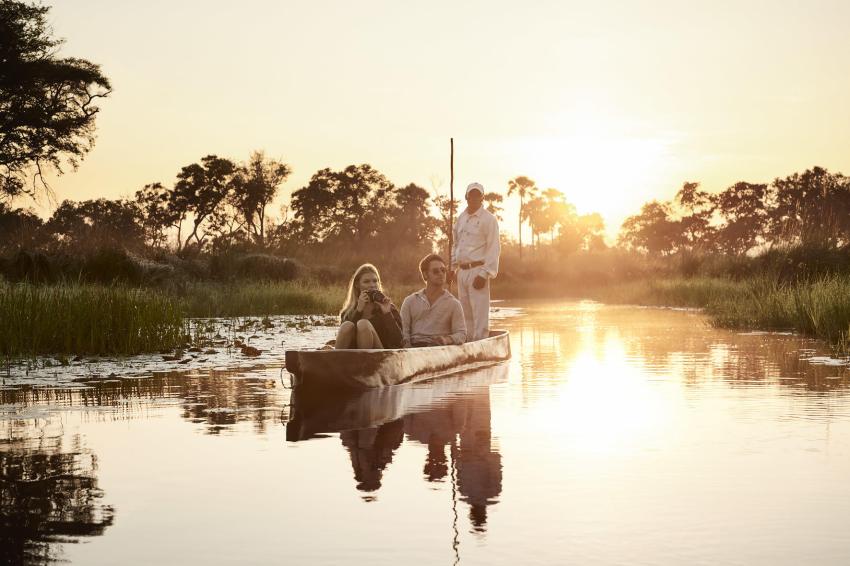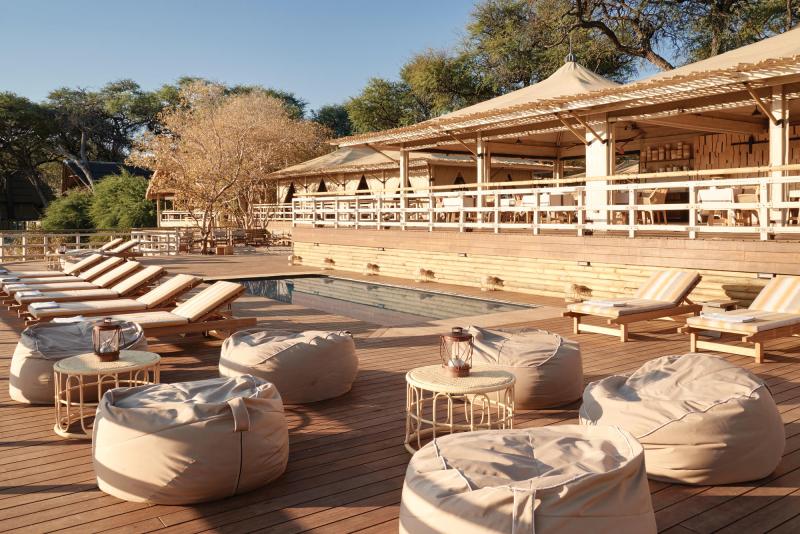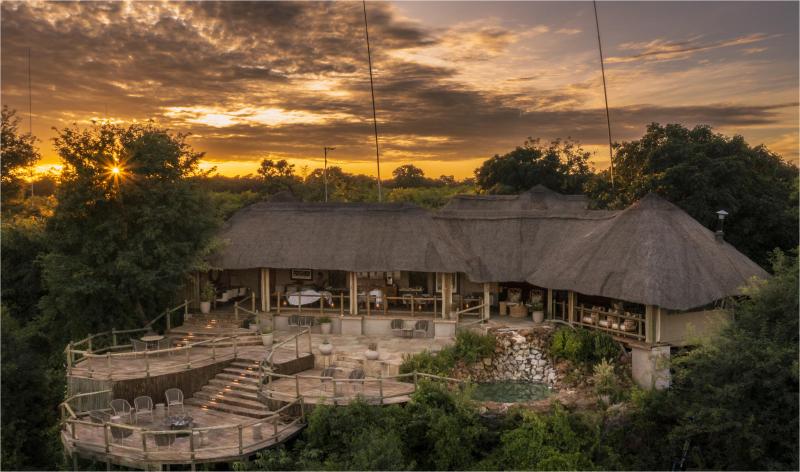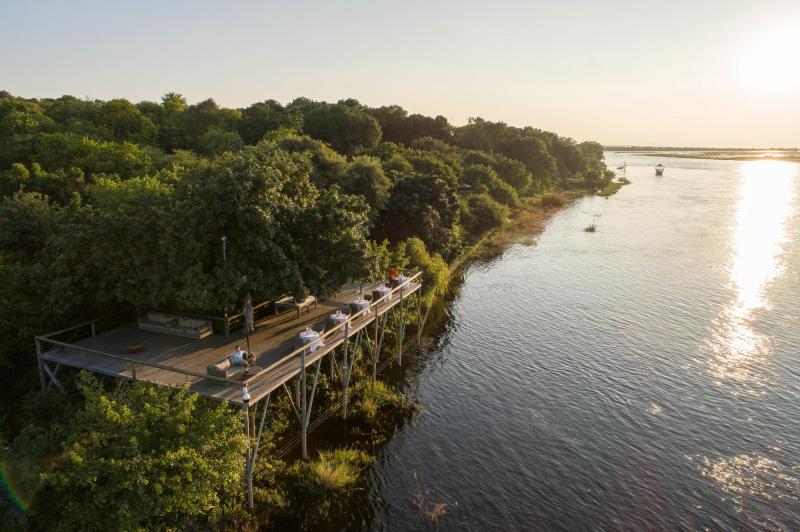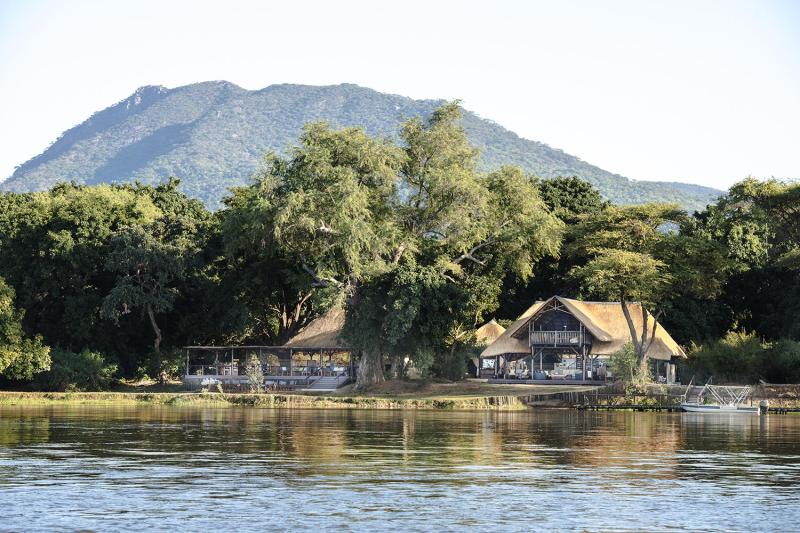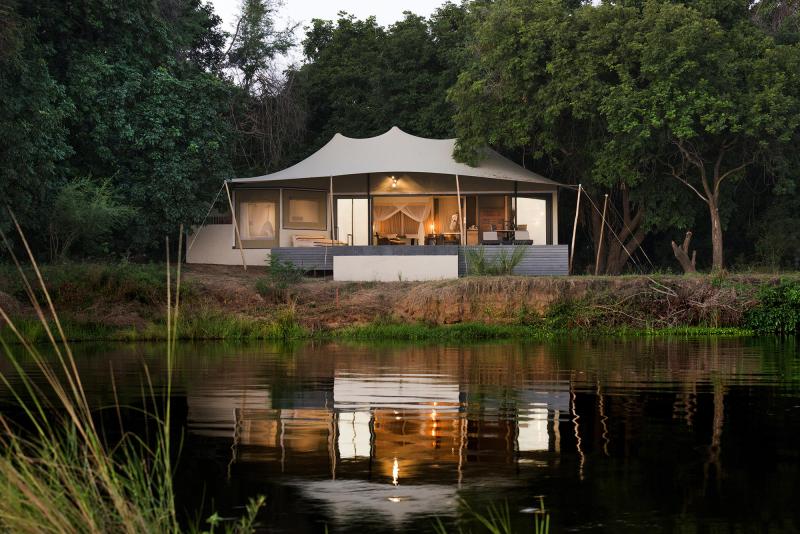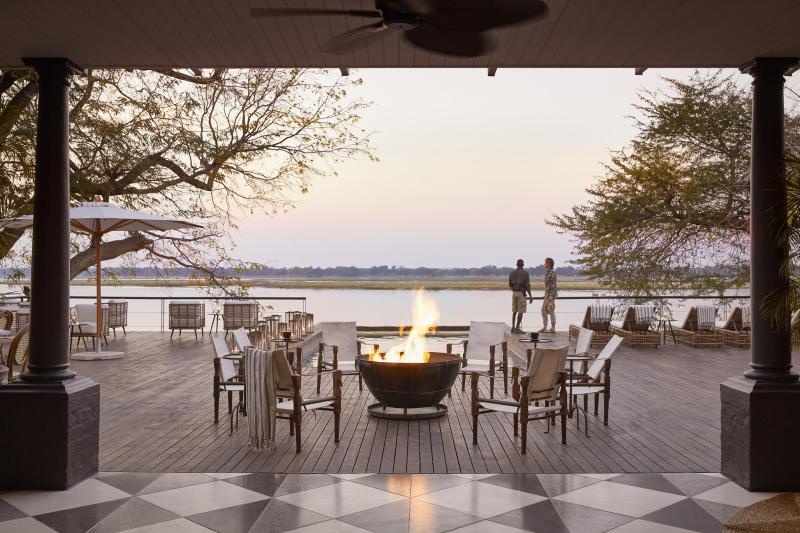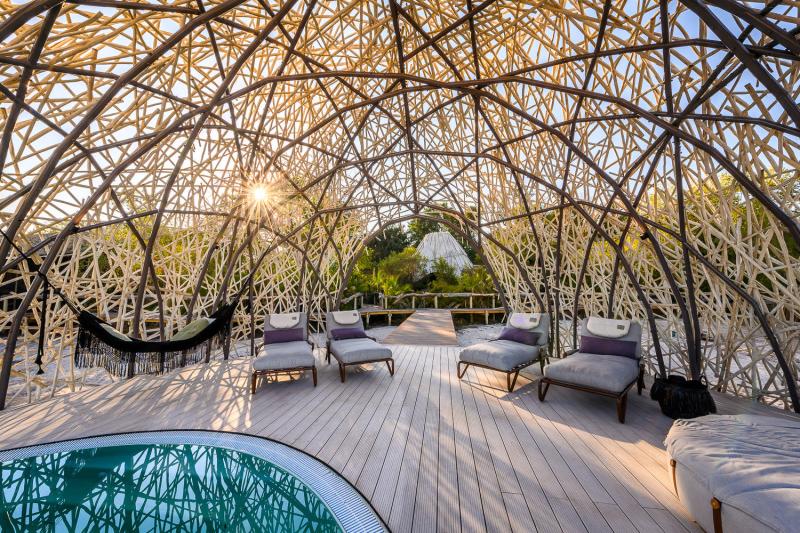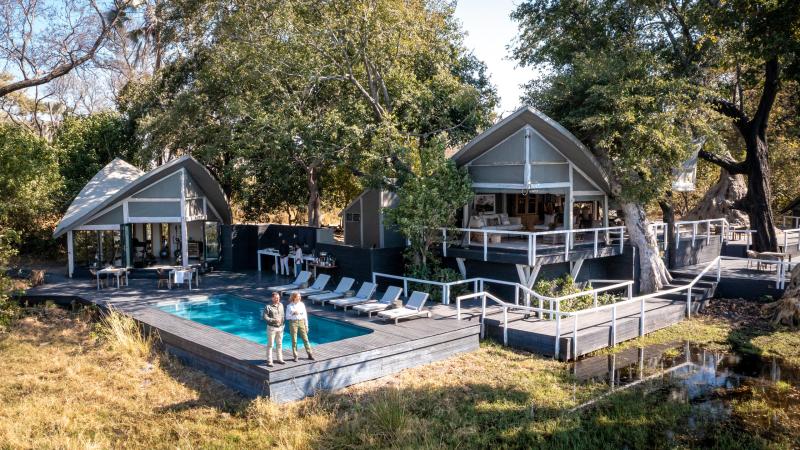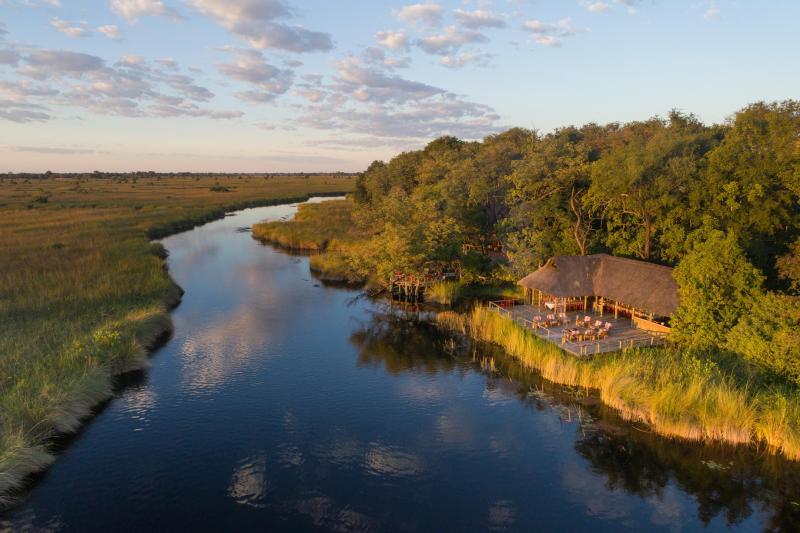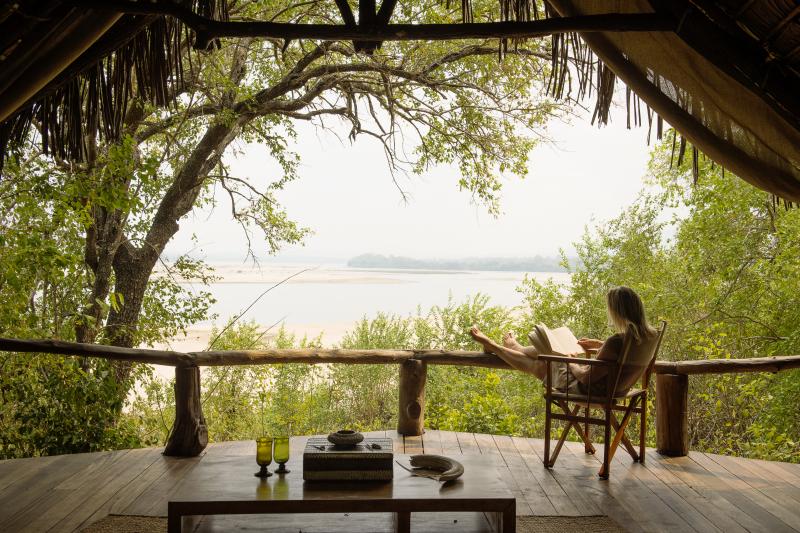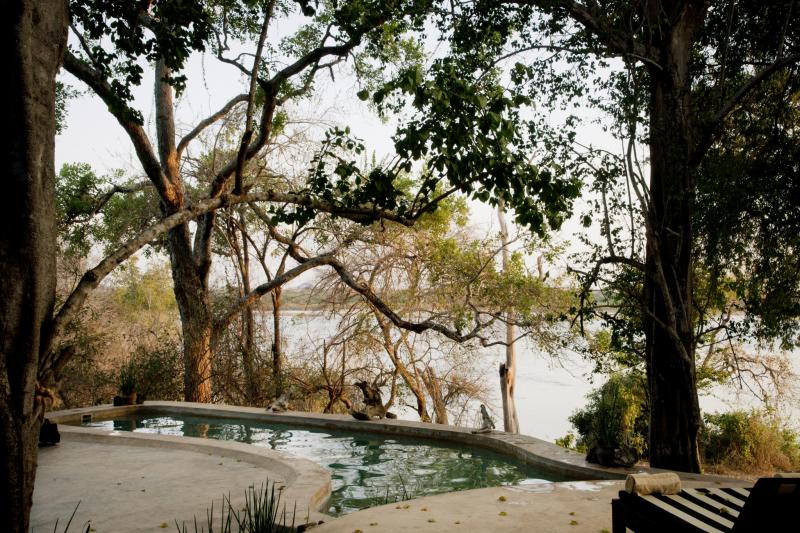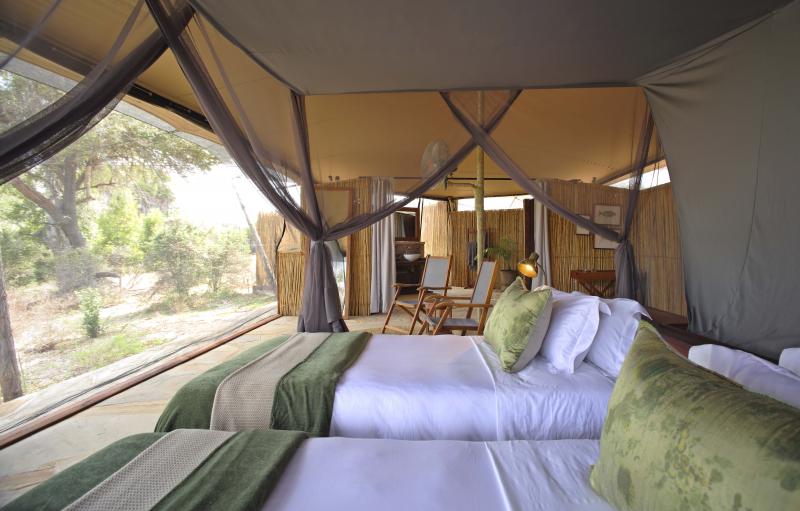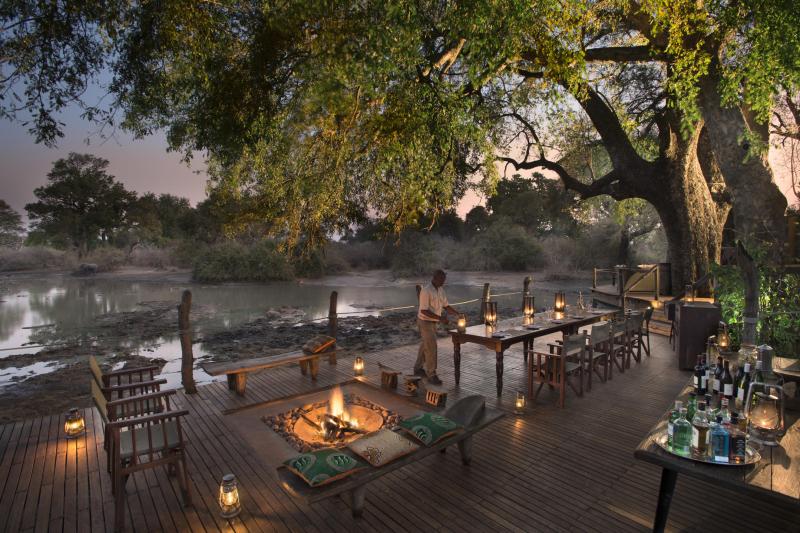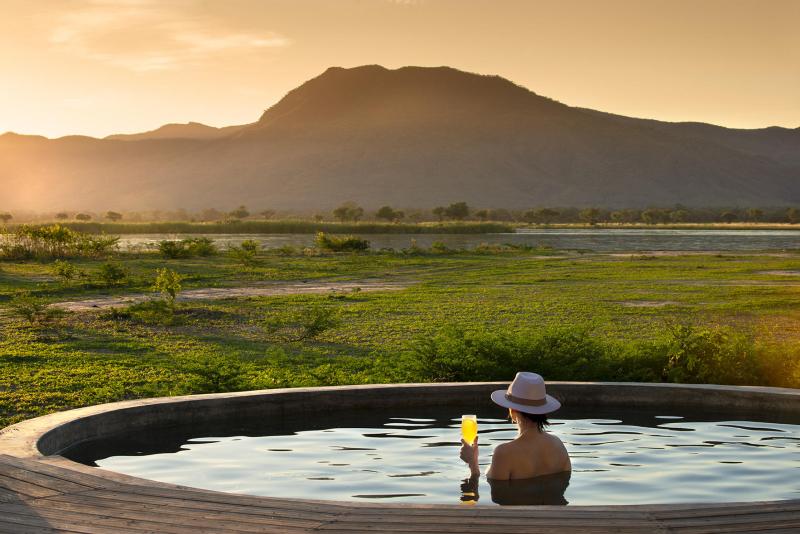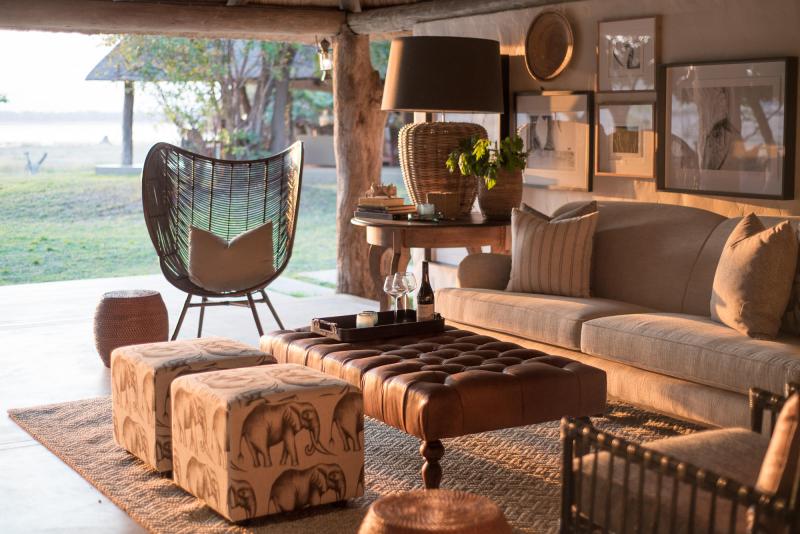An African river safari is a once-in-a-lifetime experience that allows you to intimately connect with wildlife in a way that completely differs from a game drive. As the dry season takes hold across Southern Africa, rivers transform into oases of life, with herds of elephants, migratory birds and prides of lions all converging on the water's edge to quench their thirst.
This gathering of creatures makes rivers ideal places for safari-goers to observe wildlife up close, whether by canoe, pontoon or speedboat. On the river, you are not just an observer of nature, but an integral part of it. An African river safari is an unforgettable chance to experience the continent’s majestic wildlife in some of its largest gatherings.
Whether you're a first-timer looking for a thrilling introduction to Africa or a seasoned safari veteran seeking a new perspective, read on to discover five of the best places to embark on a river safari in Southern Africa.
Chobe River, Botswana
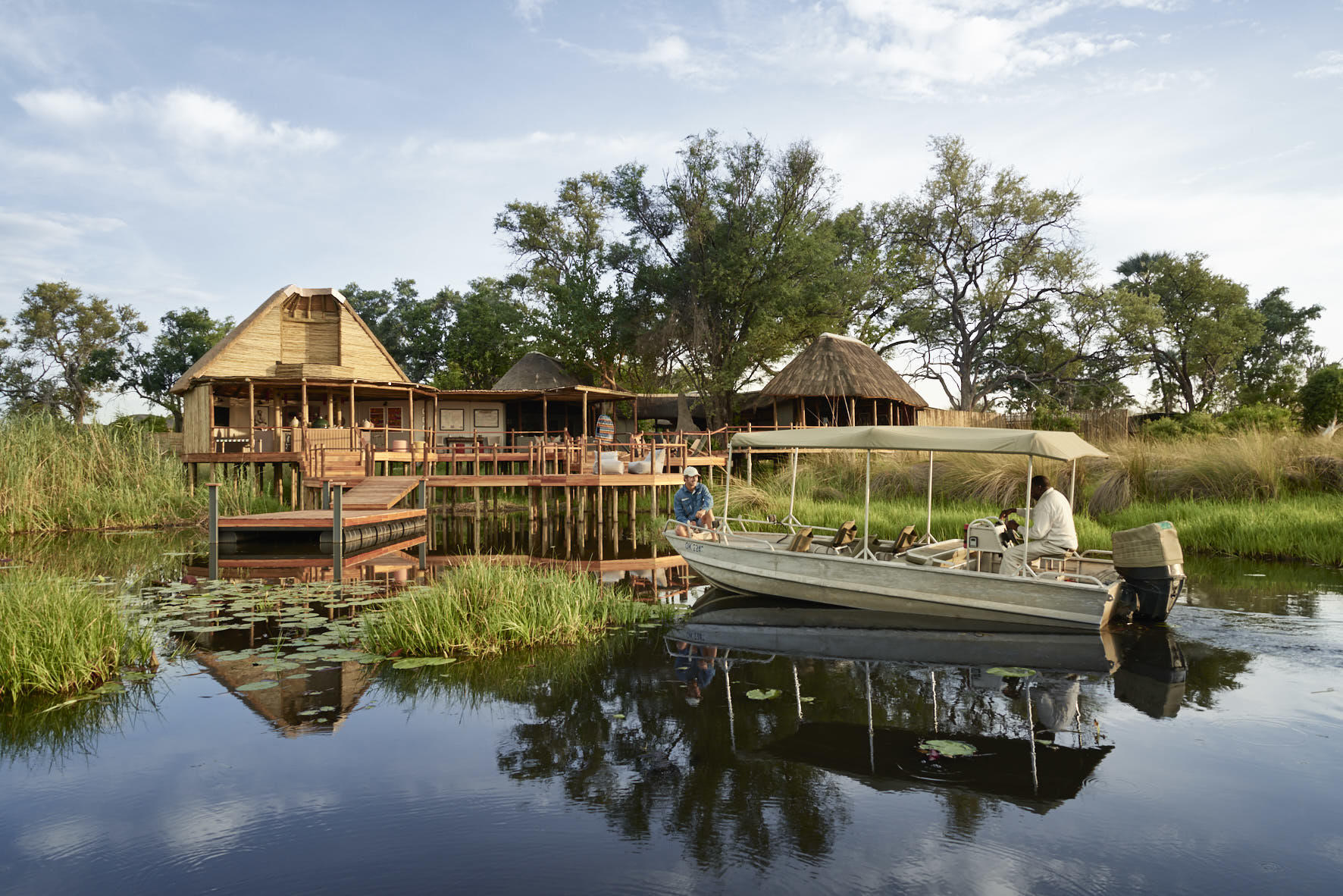
Forming the northern boundary of Chobe National Park, this perennial waterway also serves as the border between Botswana and the Caprivi Strip in neighbouring Namibia. As much of the river can’t be accessed by 4x4, a safari boat cruise is one of the best ways to explore Chobe National Park and its wildlife riches.
On a boat safari along the Chobe River, you’ll cruise through open woodlands and riverine forests while experiencing some of the best game viewing on the continent. Herds of elephants (the largest concentration in Africa) gather along the river banks to drink and bathe while massive buffalo wallow in the mud. Impala can often be seen keeping watch for lurking predators, such as lions which lounge lazily in the shade. In the deeper pools, hippos slowly emerge from the water to breathe, alongside the watchful eyes of stealthy crocodiles.
The dry season from April to October is the prime time to visit Chobe National Park, as the lack of rain drives large concentrations of wildlife to gather along the river banks.
Where to stay in Chobe River:
Lower Zambezi National Park, Zambia
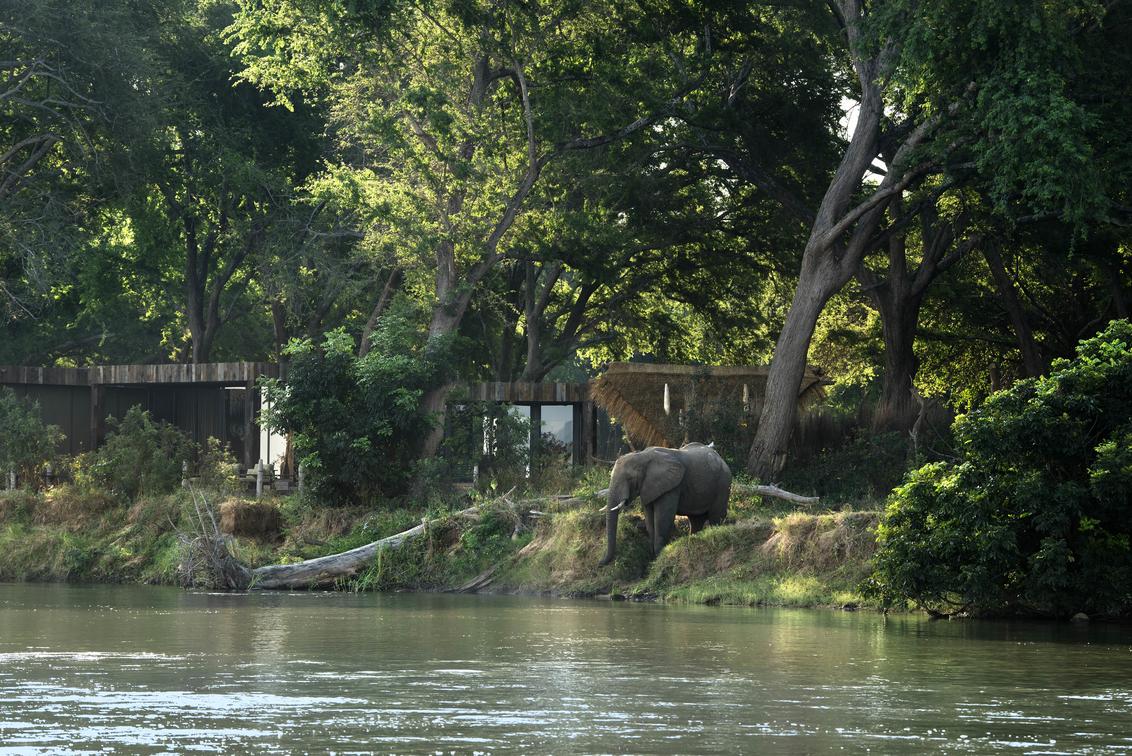
Starting as a small stream in northwestern Zambia, the Zambezi River steadily gains strength and size along its 2,574-kilometre journey. The river curves through Angola briefly before returning to Zambia, where for nearly 500 kilometres it forms a natural border with Namibia and Zimbabwe. The Zambezi reaches a thundering crescendo at Victoria Falls, where it plunges over 100 metres into the gorge below.
In southeast Zambia, the river forms part of Lower Zambezi National Park where it provides an important water source for huge herds of elephants, buffaloes and antelopes. Boat safaris provide an unparalleled view of the diverse wildlife that gathers along the Zambezi’s banks, relying on the river for their survival. As your pontoon boat glides downstream, herds of zebras and hippos can be seen quenching their thirst while lions and leopards keep watch. The birdwatching here is also superb, with trumpeter hornbills, Verreaux's eagles and Pel’s fishing owls all spotted.
For multi-day adventures, travellers can embark on leisurely cruises between riverside camps while soaking up gorgeous views along the way. Canoe safaris provide an even more intimate experience as you silently paddle between the islands and channels of Lower Zambezi National Park.
Where to stay in Lower Zambezi:
Okavango Delta
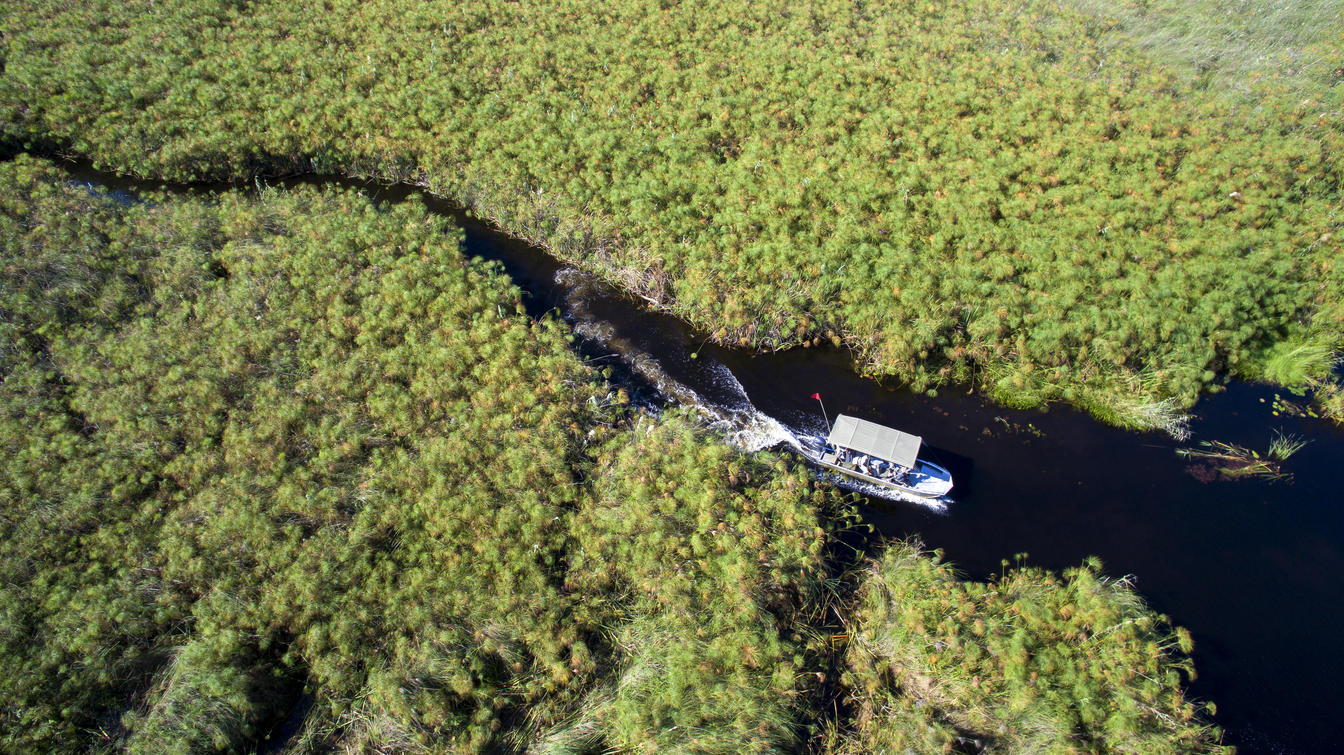
Botswana’s vast and majestic Okavango Delta truly is a sight to behold, especially during the wet season when it transforms into a watery wonderland over 16,000 square kilometres in size. From above, this flooded section of the Kalahari resembles a massive inland ocean while down below, a huge diversity of wildlife congregates to feed and breed.
The best time to explore the flooded Okavango from the water is between June and August when it has reached its full capacity. Local guides expertly pole mokoro canoes through the waterways, providing intimate access to its remote channels and islands. Along the way, you can spot huge herds of elephants swimming from island to island or hippos surfacing to take a breath. Crocodiles can also be seen basking in the sunshine while fish eagles soar overhead.
Whether drifting past a herd of lechwe antelope or catching sight of a rare Pel’s fishing owl, an Okavango boat safari is an ideal way to experience the sheer wonder of this immense inland river delta.
Where to stay in Okavango Delta:
Selous Game Reserve, Tanzania
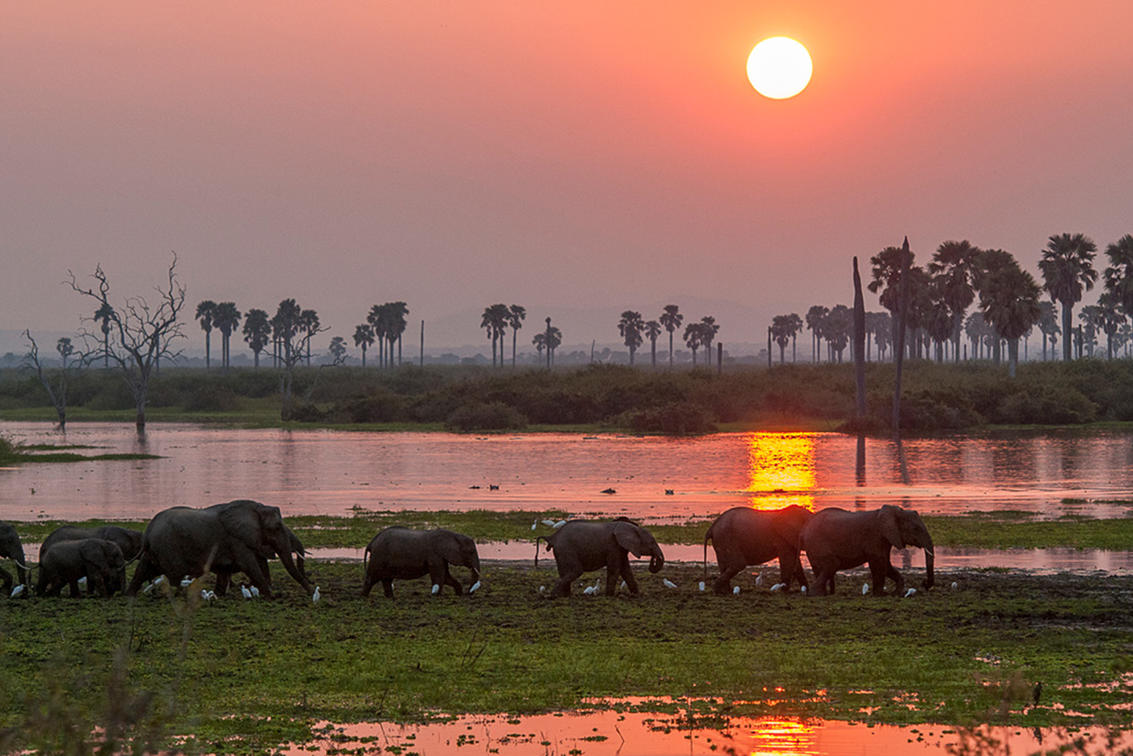
Recently renamed Nyerere National Park, this huge game reserve sprawls across more than 54,000 square kilometers in Tanzania's south and remains an off-the-beaten-track safari gem. It has been designated as a UNESCO World Heritage Site for its exceptional biodiversity, with herds of zebra, giraffe, buffalo and rhinoceros roaming its acacia savannas and miombo woodlands. Baboons and vervet monkeys play animatedly in the forests while an estimated 4,000 lions prowl the grasslands.
Nourishing this wildlife-rich ecosystem is the mighty Rufiji River, which winds its way through the park like a lifeline. Gliding silently atop the water during a boat safari allows you to spot massive hippos and crocodiles lurking just below the water’s surface, as well as colourful kingfishers and green-headed orioles perched on the overhanging branches.
In addition to sunrise and sunset boat cruises just outside the park boundaries, full-day river excursions are available within Nyerere National Park itself. These explore not only the Rufiji River but also its serene oxbow lakes where wildlife comes to rest and refuel.
Where to stay in Selous:
Mana Pools National Park, Zimbabwe
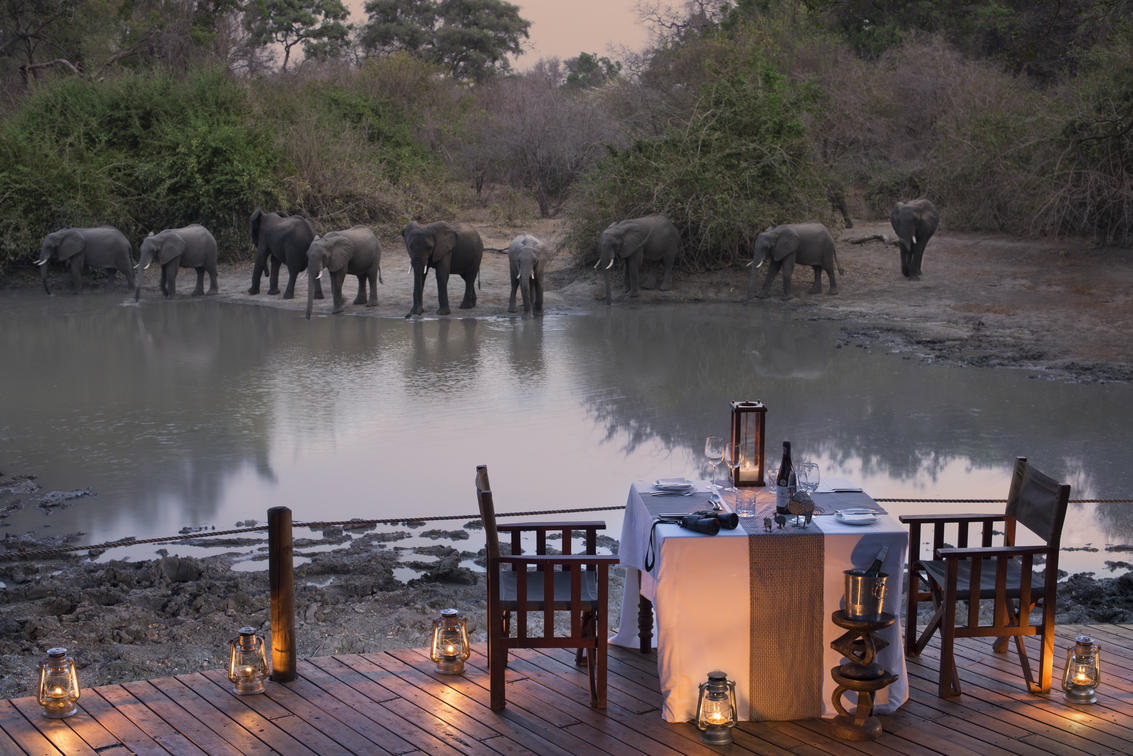
Located in the remote northern reaches of Zimbabwe along the mighty Zambezi River lies the ruggedly beautiful Mana Pools National Park. Designated as a UNESCO World Heritage Site, this wild and pristine park is part of the Zambezi Valley ecosystem that forms the border between Zimbabwe and Zambia. "Mana" translates from the local Shona language as "four," referencing the four ancient oxbow lakes that are the centrepiece of this breathtaking park.
Exploring from the water is the best way to observe Mana Pools’ resident herds of elephants and families of hippos, as well as prides of lions that congregate on the riverbanks to drink. The park is especially renowned for its abundant populations of Nile crocodiles, which bask on the shores and patrol the shallow waters.
Guided canoe safaris in Mana Pools are a wonderful way to wildlife watch under your own steam, allowing you to get up close to animals without scaring them away. Pontoon boat safaris are another option and offer a gentle pace as you quietly drift past riverbanks. To cover more ground, speedboats provide a thrilling experience, though regulations limit their use to certain designated areas to minimise disruption of the ecosystem.
Where to stay in Mana Pools:
Want help planning the ultimate river safari in Southern Africa? Get in touch with our knowledgeable safari experts today.
Help Me Plan

 1-321-766-6821
1-321-766-6821 
